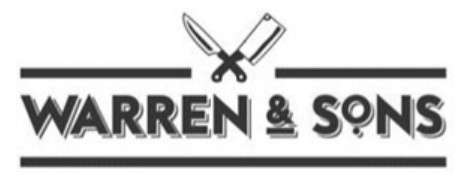In Philip Warren & Son vs Lidl, the High Court found no operative misrepresentation, given the types of product Lidl sells and the different markets the two businesses serve.
What has happened?
- The High Court has found in favour of Lidl in a recent passing off claim brought against it by a firm of family butchers, Philip Warren and Son Limited (PWS).
- The High Court ruled that, although PWS had considerable goodwill in its sign in Launceston, UK and the surrounding area, it had not shown enough "evidence of a significant level of operative misrepresentation to any category of its customers".
- This was particularly so given Lidl's reputation for selling Lidl and other house branded products and because the two businesses operated at different ends of the market.
- There was also no significant damage to PWS's business.
- The case illustrates the limitations of passing off claims, particularly where the context negates any misrepresentation.
Want to know more?
Phillip Warren & Son is a family-run butchers, operating under that name since the 1980s. It is well-known locally in Launceston, Cornwall, with a reputation for producing high-quality, authentic local meat. It also operates more widely through its wholesale business and as a supplier of luxury restaurants. It is regularly promoted in the food press. By 2015, it had turnover in excess of £11 million per annum.
From 2015 to 2020, Lidl used the brand "Warren & Sons" (in the logo form below) nationwide for fresh meat products. There was no evidence of any intention by Lidl to trade-off of the PWS name. Over five years, a significant amount of produce was sold by Lidl under this brand, with an estimated revenue of £47 million.

Soon after Lidl launched its goods under the "WARREN & SONS" brand, PWS began receiving complaints from customers who thought that PWS had started to sell its products in Lidl stores. PWS, unrepresented at this point, felt nothing could be done.
However, after two years had passed, PWS was advised that it may have a claim in passing off. It eventually took legal action – although, by then, Lidl had decided to rebrand its "WARREN & SONS" products and the last remaining products bearing that name were sold in 2020.
Goodwill
Lidl did not dispute that PWS had the relevant goodwill in the PHILLIP WARREN business local to Launceston and the surrounding area, but it did reject the claim that PWS had significant "retail" goodwill beyond that.
This gave rise to the question of how far goodwill extends in the surrounding area. There was suggestion that customers came from outside Launceston, as well as evidence that at least some second-home owners from outside Cornwall would have been customers.
Considering the evidence, it was concluded that PWS’s retail business and goodwill was heavily focused on Launceston and the surrounding area, and the number of other customers from surrounding areas was not likely to have been substantial.
Conversely, it was found that PWS had built up a substantial goodwill in the wholesale trade.
Misrepresentation
The court considered whether Lidl’s retail of WARREN & SONS branded meat in the local area was likely to have involved an operative misrepresentation to this section of the public. It ruled that even those who were aware of both businesses would not be confused into believing there was any association between the two companies. This was particularly so given Lidl's reputation for selling Lidl and other house branded products. Moreover, there would be little overlap in customers as the two businesses operated at different ends of the market.
The same was true in the wholesale market, with the court commenting that:
"…it is highly unlikely that Lidl’s sale of meats with this trade mark gave rise to an operative misrepresentation to a significant number of those engaged in the wholesale trade."
Damage
It is not necessary to prove actual damage for the purpose of a successful passing off claim. However, it is necessary to satisfy the court that the defendant's actions caused (or were likely to cause) material damage to the claimant's goodwill. Here, there was no evidence that Lidl’s actions caused any material damage to PWS – "any damage done to PWS’s goodwill would have been, at the highest, very tiny." Indeed, PWS's business had expanded in the time period in question.
What does this mean?
This is not the only passing off case to fail recently. In the recent Original Beauty v G4K case, the High Court ruled that there was no passing off for similar reasons: there was insufficient evidence, especially after many years of co-existence, that a sufficient number of consumers had been deceived. Both cases highlight the difficult nature of bringing passing off claims where the context negates a misrepresentation.
Find out more
To discuss the issues raised in this article in more detail, please reach out to a member of our Brands & Advertising team.





